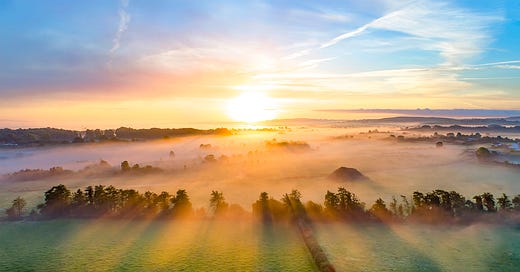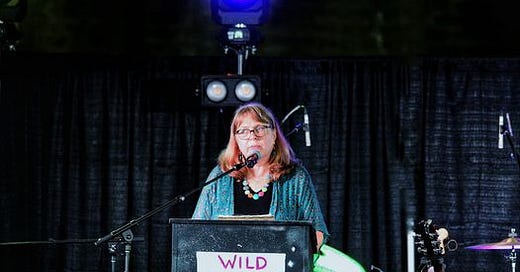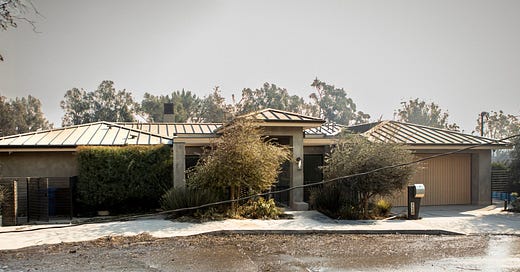
Today is the twenty-first Sunday after Pentecost. The gospel readings continue to be an odd assortment of parables and teachings. The Matthew 22 text for this morning includes one of the most often-quoted of Jesus’ sayings, words occasioned by a challenge from his opponents about taxes. His well-known reply: “render to Caesar the things that are Caesar’s, and to God the things that are God’s.”
In recent years, I’ve heard many good sermons on that text. Most focus on Jesus’ criticism of empire and emphasize the political interpretation of his words. I’ve preached a few in the same vein.
But I’m no mood to talk about taxes today, even in a radical Jesus-y way. I finally finished my 2022 taxes a few days ago — and I’ve got big feelings right now about Caesar’s cut!
Instead, like last week, my heart leans toward the psalm: Sing to the Lord a new song; sing to the Lord, all the whole earth.
Join me in the song.
Psalm 96:1-9
Cantate Domino
Sing to the Lord a new song;
sing to the Lord, all the whole earth.
Sing to the Lord and bless his Name;
proclaim the good news of his salvation from day to day.
Declare his glory among the nations
and his wonders among all peoples.
For great is the Lord and greatly to be praised;
he is more to be feared than all gods.
As for all the gods of the nations, they are but idols;
but it is the Lord who made the heavens.
Oh, the majesty and magnificence of his presence!
Oh, the power and the splendor of his sanctuary!
Ascribe to the Lord, you families of the peoples;
ascribe to the Lord honor and power.
Ascribe to the Lord the honor due his Name;
bring offerings and come into his courts.
Worship the Lord in the beauty of holiness;
let the whole earth tremble before him.
This past week, I spoke at a gathering of progressive Christian musicians. Initially, I was a little surprised by the invitation. I love to sing, but the lack of public singing during the pandemic has taken a terrible toll on my voice. And, despite obligatory childhood piano and clarinet lessons, I’m not a musician. I grew up in a visual arts family. Dad was a florist. Mom was an amateur artist who had wanted to be an art teacher. My world was of color, shape, and form — all with paint, pencils, fabric, canvas, and clay. Our house was a constant mess of creativity.
But I’ve always liked musicians — my Sunday school teacher at the piano, the organist at church, famous entertainers with their guitars, voices on the radio and from records. They were like magicians. They seem to create ex nihilo, making beauty from things you couldn’t see and ultimately couldn’t hold.
That magic has always undone me. I don’t know what it is about sound that takes us to places we don’t know we need to go. I’m sure there are all sorts of scientific explanations for it. But the capacity of music to transport, transfix, transform, and transcend — all those transes! — is astonishing.
The conference wasn’t much different. Put me in a roomful of musicians and I’m instantly in awe. And something happens. I feel things that I didn’t know I needed to feel, unleash things that I didn’t know were bound.
It was emotional. I got pretty weepy. I said things in public I’d never said before. They pulled it from me, these musical friends and colleagues. Maybe, because of all the terrible things going on in the world, I needed them to help me touch courage, creativity, and pain anew.
On Thursday evening, we were treated to an intimate concert with Noel Paul Stookey, singer-songwriter who was part of the legendary folk trio, Peter, Paul, and Mary. (FYI: he has a new Substack called Strings.)
His familiar voice filled the small chapel — embracing the room with gratitude, wisdom, and love. As he sang, I realized that his voice had been with me during my entire life. The first two songs I knew by heart were Jesus Loves Me and Puff the Magic Dragon, and I’d sing both playing in the yard or sitting in a circle in the Sunday school at the Methodist church. The oldest songs, those first songs, sounded chords deep within. The sound brought forth memories, like images in an old Viewmaster, flashing across my mind’s eye. Something moved; something healed; something was made whole. Something I didn’t know was wounded.
Sing to the Lord a new song;
sing to the Lord, all the whole earth.
Sing to the Lord and bless his Name;
proclaim the good news of his salvation from day to day!
Terrorists and tyrants always want to silence song. They don’t want creation’s music heard — the voices of God’s people to rise in hope and joy and praise. They shoot concertgoers, ban lyrics, boycott singers and troubadours, all in an effort to turn song toward themselves and make themselves god.
Song and salvation are of a piece. Hear the music of creation, the very heartbeat of heaven. Listen for the voice. Lift yours. May we all join our voices together. The world needs the old songs. And it aches for new ones.
Let the word of Christ dwell in you richly; teach and admonish one another in all wisdom; and with gratitude in your hearts sing psalms, hymns, and spiritual songs to God.
— Colossians 3:16
INSPIRATION
Sometimes the mist overhangs my path,
And blackening clouds about me cling;
But, oh, I have a magic way
To turn the gloom to cheerful day—
I softly sing.
And if the way grows darker still,
Shadowed by Sorrow’s somber wing,
With glad defiance in my throat,
I pierce the darkness with a note,
And sing, and sing.
I brood not over the broken past,
Nor dread whatever time may bring;
No nights are dark, no days are long,
While in my heart there swells a song,
And I can sing.
— James Weldon Johnson, “The Gift to Sing”
’T is you that are the music, not your song.
The song is but a door which, opening wide,
Lets forth the pent-up melody inside,
Your spirit’s harmony, which clear and strong
Sing but of you. Throughout your whole life long
Your songs, your thoughts, your doings, each divide
This perfect beauty; waves within a tide,
Or single notes amid a glorious throng.
The song of earth has many different chords;
Ocean has many moods and many tones
Yet always ocean. In the damp Spring woods
The painted trillium smiles, while crisp pine cones
Autumn alone can ripen. So is this
One music with a thousand cadences.
— Amy Lowell, “Listening”
The caged bird sings with a fearful trill,
of things unknown, but longed for still,
and his tune is heard on the distant hill,
for the caged bird sings of freedom.
― Maya Angelou
My life flows on in endless song
Above earth's lamentations
I hear the real, though far off hymn
That hails a new creation
Above the tumult and the strife
I hear its music ringing
It sounds an echo in my soul
How can I keep from singing?
When tyrants tremble, sick with fear
And hear their death-knell ringing
When friends rejoice both far and near
How can I keep from singing?
In prison cell and dungeon vile
Our thoughts to them go winging
When friends by shame are undefiled
How can I keep from singing?
And while the tempest loudly roars
I hear the truth, it liveth
And though the darkness round me close
Songs in the night it giveth
No storm can shake my inmost calm
While to that rock I'm clinging
Since love is lord of Heaven and earth
How can I keep from singing?
How can I keep from singing?
Alleluia, Alleluia
— Robert Lowry, these lyrics adapted by Noel Stookey and Doris Plenn, “How Can I Keep From Singing”
And, of course, a couple of songs for you to listen to this Sunday.
First, a familiar one:
And a new song, “Take Us Home by Another Way” by Christopher Grundy. I hadn’t met him until this week — and his music is wonderful! He had us sing this Epiphany song like pirates in a bar, “swashbuckling style.” Trust me, it was FUN. And it was REALLY hard for me to speak right after that!
NEWS FROM THE COTTAGE
Readers occasionally ask what Substack is — and why different kinds of subscriptions are available. Here’s a primer for the curious:
What does “Reader-Supported” Mean?
“Reader Supported” is a revolution in publishing. With the struggle of traditional news and magazine models, as well as decentralized media and the unreliability of social media, many writers felt at a loss as to how to reach their readers as their jobs and publications were cut. With the exception of a pandemic bump, people read less, more books are published and fewer are bought. In short, we live in a flood of words, often overwhelmed.
Substack is a writing platform intended to change that. The smart people who designed this space — where The Cottage “lives” — put readers and writers in a direct relationship where we aren’t dependent on algorithms, advertisements, and profits. That means readers have the chance to interact with writers they love — and form genuine online community with one another.
A subscription is far more than a goods-for-service fee. In traditional publishing, you pay a publisher for a product. Your money is divided up between a large number of people in the process — executives and shareholders, distribution outlets (like Amazon and other booksellers — independents are the best!), professionals including editors, designers, copyrights, agents, marketing and sales staff, and production costs. That means, when you put down $25 for a hardback book, the author receives back somewhere around $2.50-$4.00. A successful book in religion sells about 10,000 copies. Well, you can do the math.
It is a remarkable amount of work — even for those of us who stay in traditional publishing because we actually still believe in it — for slow and little financial return. Most of the authors you love are not rich. Like artists, teachers, journalists, and preachers, we’re pretty hard-working, middle-class bunch (if we are lucky!).
Substack upends that entire scenario. Instead of paying a corporation, you support writers directly. Substack’s fee for technology, editorial assistance, payment processing, and production, is about 15% of your subscription. The rest — about 85% — goes directly to support my work and my salary. That means for your $50 yearly fee, the good gurus behind this place receive $7.50 and the author gets about $42.50.
I’ve been a freelancer for 18 years. Over that time, I’ve never had a regular salary. With Substack’s help, you’ve made it possible for me to breathe again — refine my commitment to craft, think about upcoming projects, and respond more quickly to your concerns, issues, and hopes.
Your subscription doesn’t just pay for a product — a kind of quid pro quo corporate arrangement. Your subscription supports an author, the words and ideas she shares, co-creates with her, and makes the whole thing possible.
I couldn’t be more grateful.
What’s Next? Gratitude Month (November) and Advent (December)
November and December are always special at The Cottage.
This year is no exception.
There will NOT be a paid series for Gratitude Month this year, but there will be a special emphasis open to the ENTIRE community on gratefulness. Sunday Musings will emphasize thanksgiving and abundance. Expect prayers and poems regarding gratitude. And each newsy, issue-oriented piece will seek a way through the all the bad and scary news by looking for beauty and goodness amid the chaos.
During Advent, there will be a paid subscriber special series — a thematic Advent calendar from December 1 - Christmas. I offer these for the paid community in order to create a more intimate, seasonal experience. MORE DETAILS TO FOLLOW! I’m looking forward to it — lots of visuals and mini-reflections coming your way. As many of you know, the winter spiritual seasons — Advent, Christmas, and Epiphany — are my favorites.
SOUTHERN LIGHTS IS BACK
January 12 -14, 2024
And our theme is Reimagining Faith Beyond Patriarchy and Hierarchy
Last January, almost 700 people gathered at St. Simon’s Island in Georgia for a packed weekend of poetry, theology, and music.
WE’RE GATHERING AGAIN!
YOU ARE INVITED to join me and Brian McLaren as we reimagine our faith beyond patriarchy and hierarchy in our interior lives, in our communities of faith, and in the Scriptures. We’ve asked three remarkable speakers to take us through this journey: Cole Arthur Riley, Simran Jeet Singh, and Elizabeth “Libbie” Schrader Polczer. Our special guest chaplain for the weekend will be the Rev. Winnie Varghese (St. Luke’s Episcopal, Atlanta).
Please come and be with us in Georgia. SEATS ARE INCREASINGLY LIMITED and hotels are filling up!
Or, if you’d rather be with us online, you can choose that option as well.
INFORMATION AND REGISTRATION CAN BE FOUND HERE.
If music is the language of the soul made audible, then human voices, raised in concert in human gatherings, are primary instruments of the soul.
— Don Saliers
















Thank you so much for this reflection. I so needed to hear it, feel it and with gratitude take it into my soul. My heart is struggling at the moment. In light of the horror of terrorists creating havoc in this beautiful world, along with my own grieving heart I am searching for a way to move forward in my life. I lost my spouse in August. I am in a foreign country staying with my compassionate daughter and her partner who have gone out of their way to assist my new status of widowhood. In some odd, unsolicited way your post this am has given me strength, maybe some courage (?) to re-engage God's world with a new song. I will sing a new song to the Lord for wonders she has done. For today at least I will hear songs old and new in my head and have peace and joy in hearing them. With gratitude a faithful reader.
I have sent this on to the Cantor at my spouse's Temple. After being disabled my singing ended as I'd lost my projection. I got really mad at music and myself for reacting as I did.
And then I met Cantor and things began to remove that anger. I now sing as part of the audience encouragement as most of service is sung.
Talk about being in awe